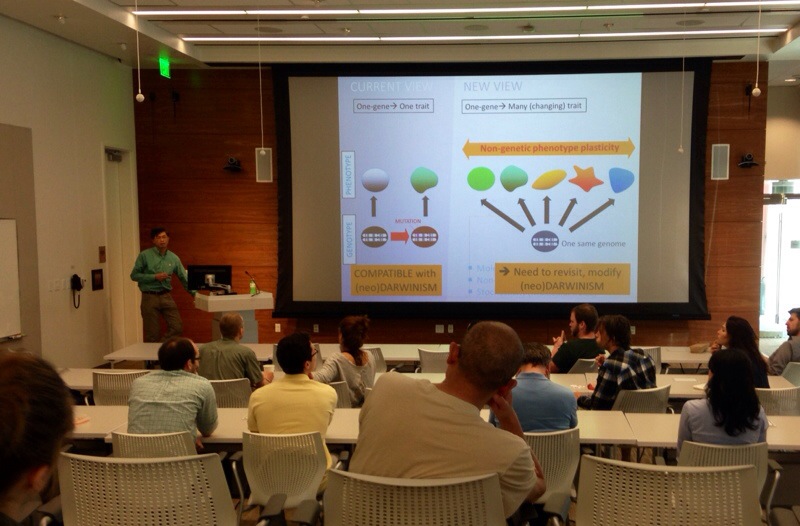LAB NOTEBOOK: Evolution Beyond Darwin
 isbscience.org/news/2014/05/15/evolution-beyond-darwin/
isbscience.org/news/2014/05/15/evolution-beyond-darwin/
(Photo: Dr. Sui Huang presenting during an ISB systems biology discussion group on May 15, 2014.)
LAB NOTEBOOK: At ISB, we hold systems biology discussion groups every Thursday during lunch. The topics vary from week to week, but the intention is to inspire exchanges amongst our staff.
Today's discussion group was presented by Dr. Sui Huang – our resident theorist, who always poses just the right question to provoke thought and debate.
Here's how he described today's talk:
EVOLUTION BEYOND DARWIN
“Nothing in Biology Makes Sense Except in the Light of Evolution”
(T. Dobzhansky, 1973).
“Nothing in evolution makes sense except in the light of (systems) biology”
(S. Huang, 2014)
This will be an open interactive discussion about Non-Darwinian dynamics in the evolution of complex systems. It has nothing to do with the evolution vs creation debate. But rather, with alternative scientific theories of evolution that do not depend on the blind application of the “selection of the fittest” but have been suppressed by the orthodoxy of Neo-Darwinism.
It definitely inspired an animated discussion!
Lab Notebook offers a glimpse into the day-to-day at ISB and ISB culture.






